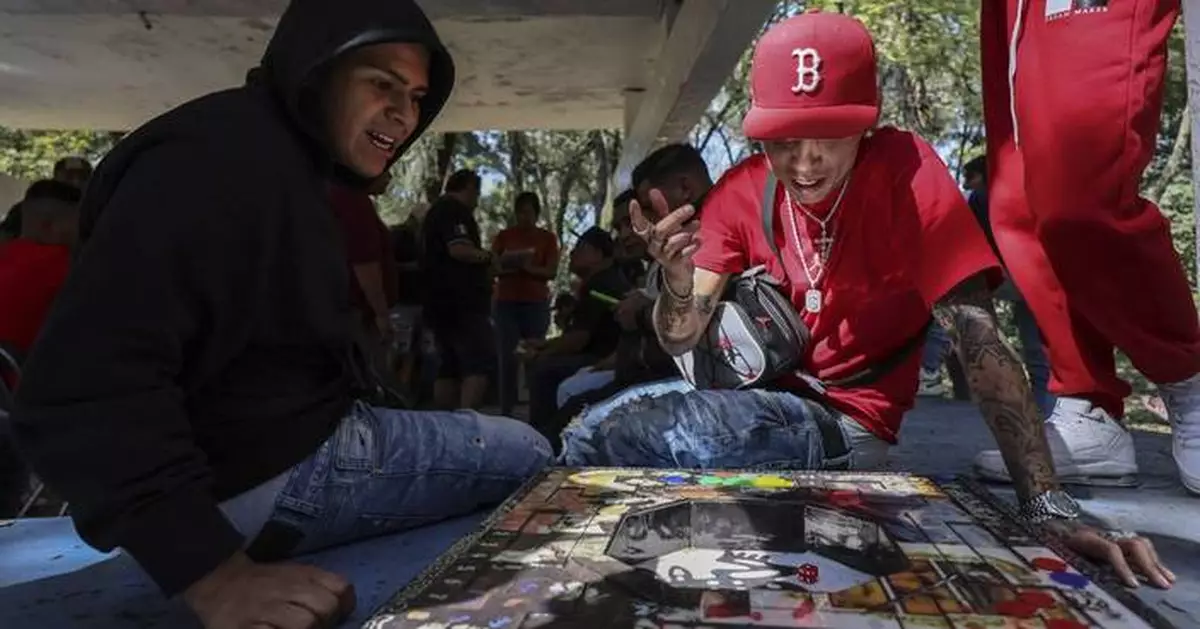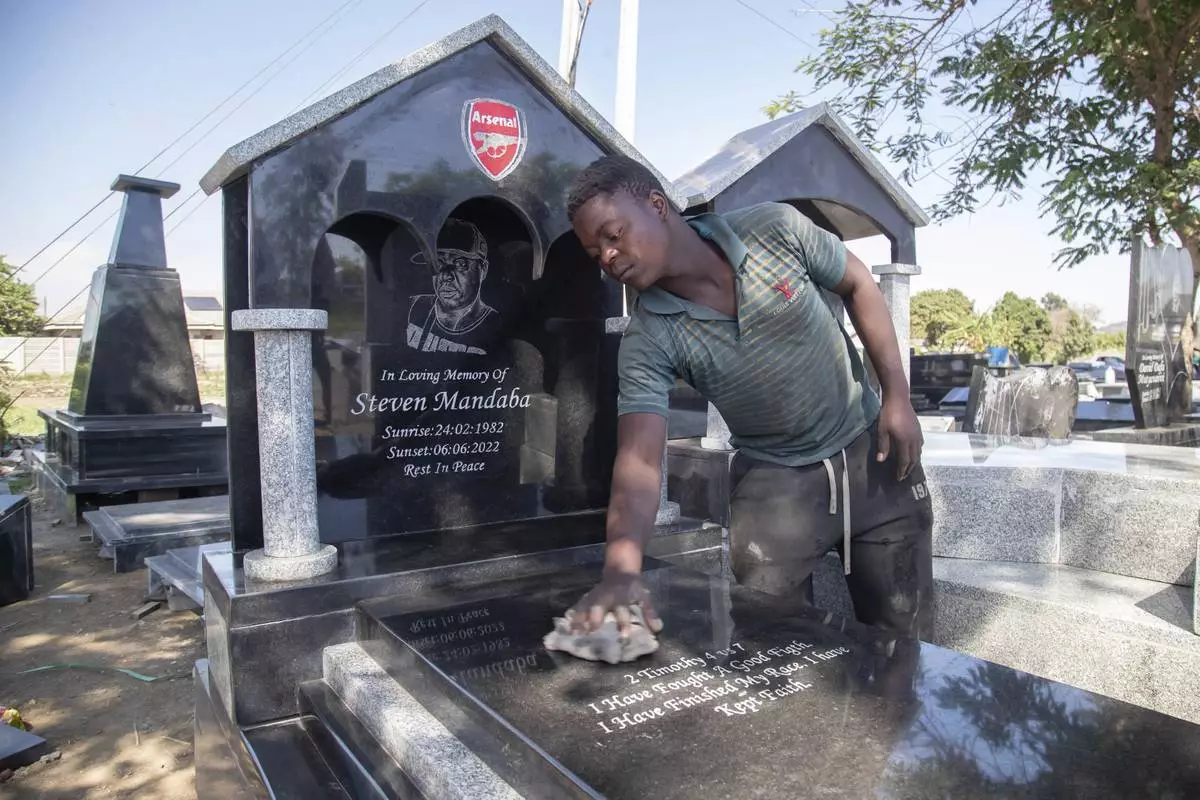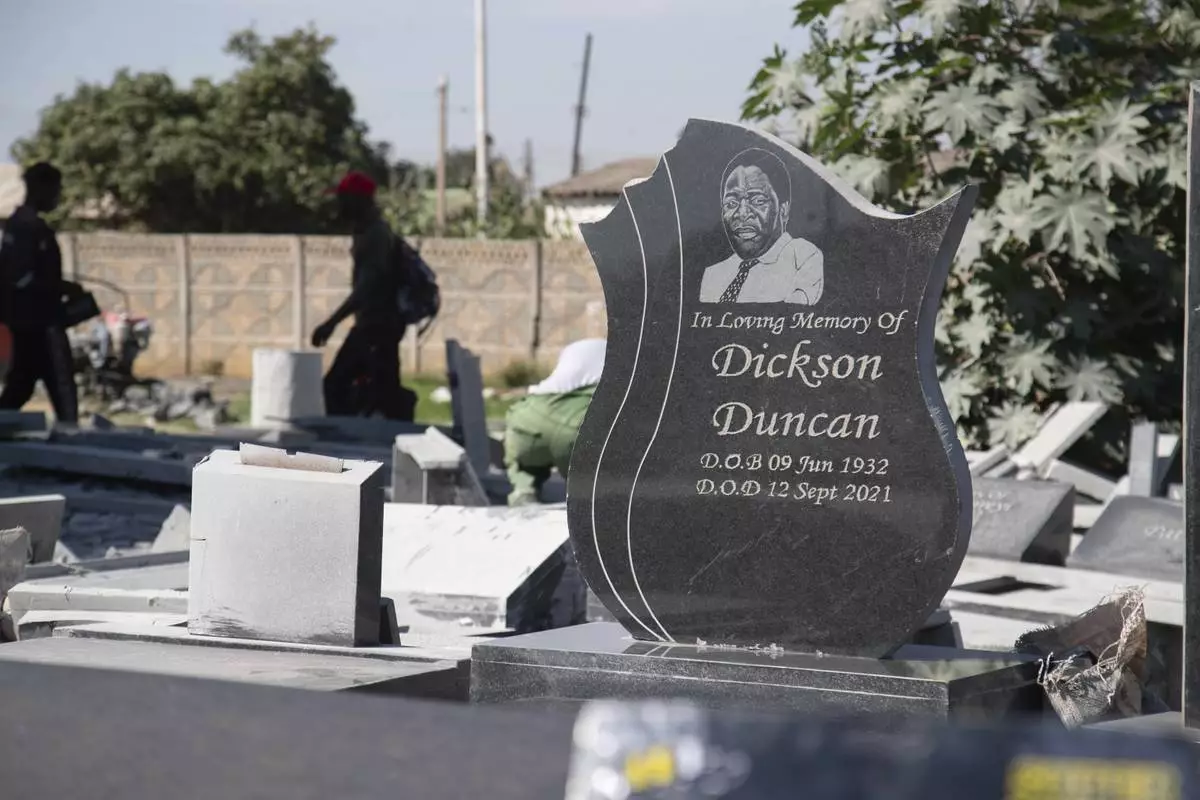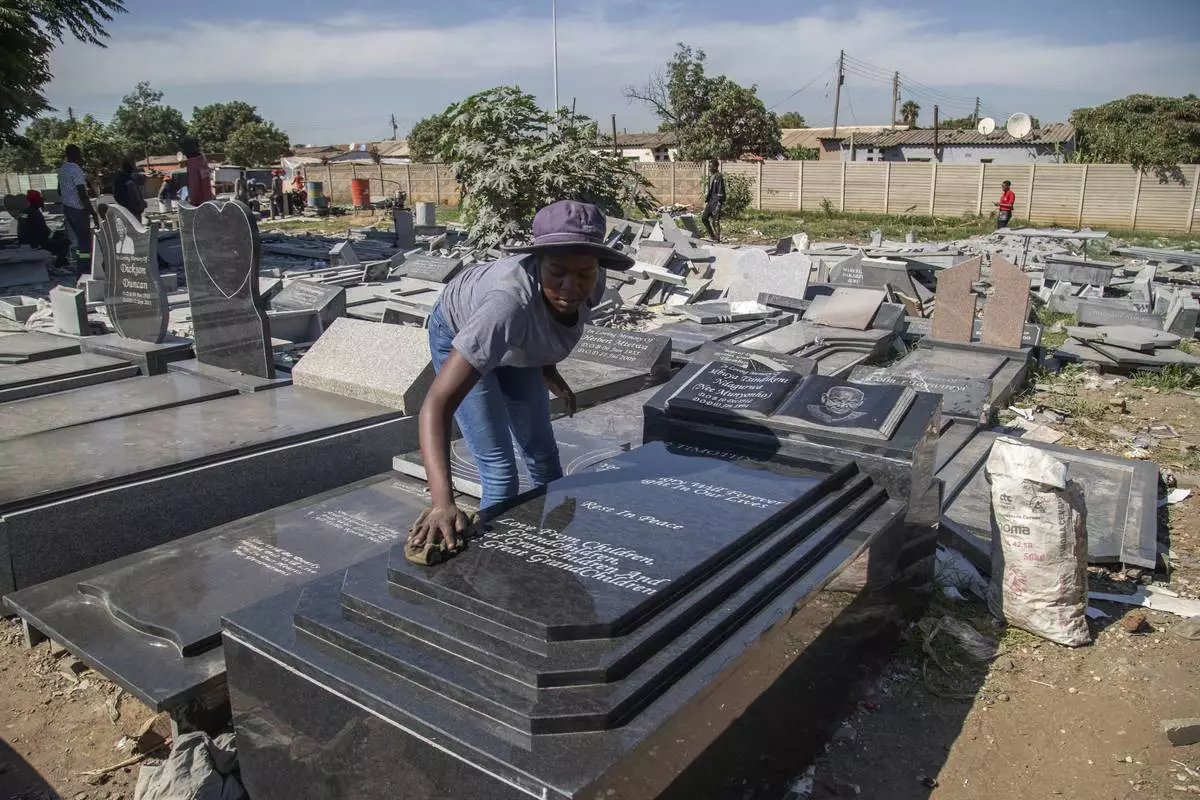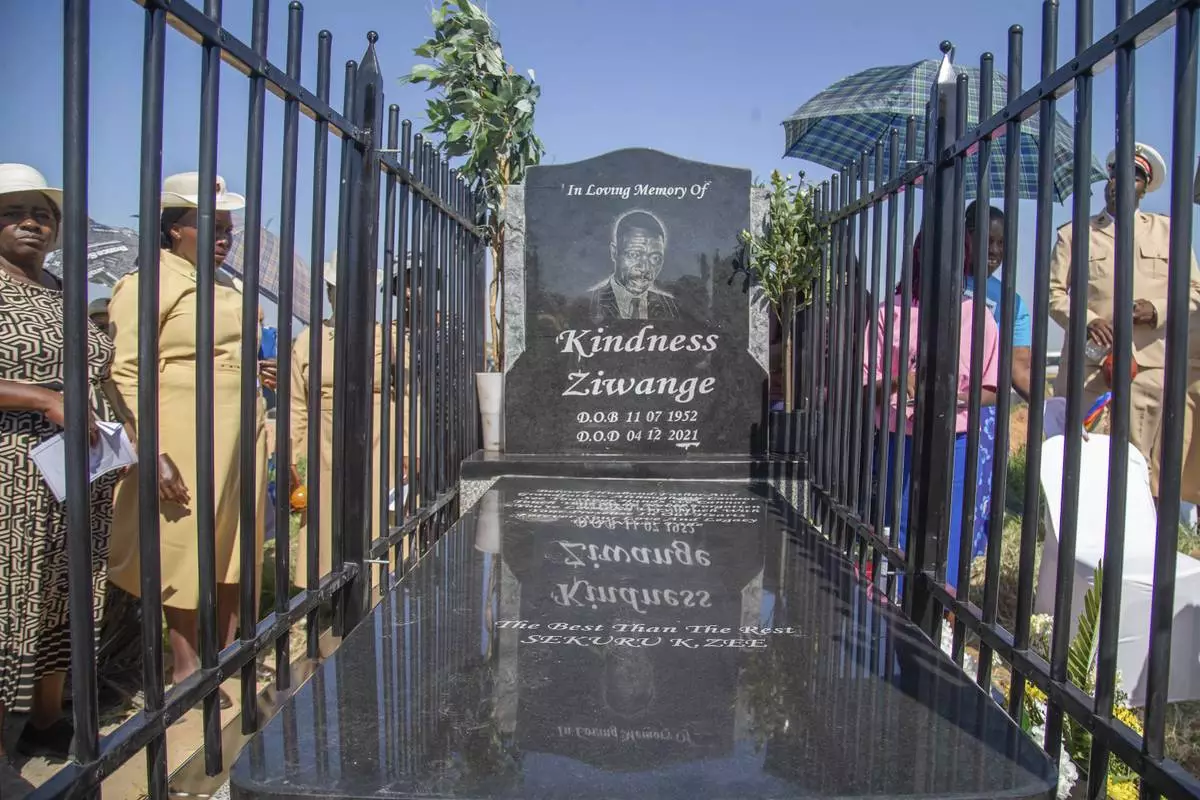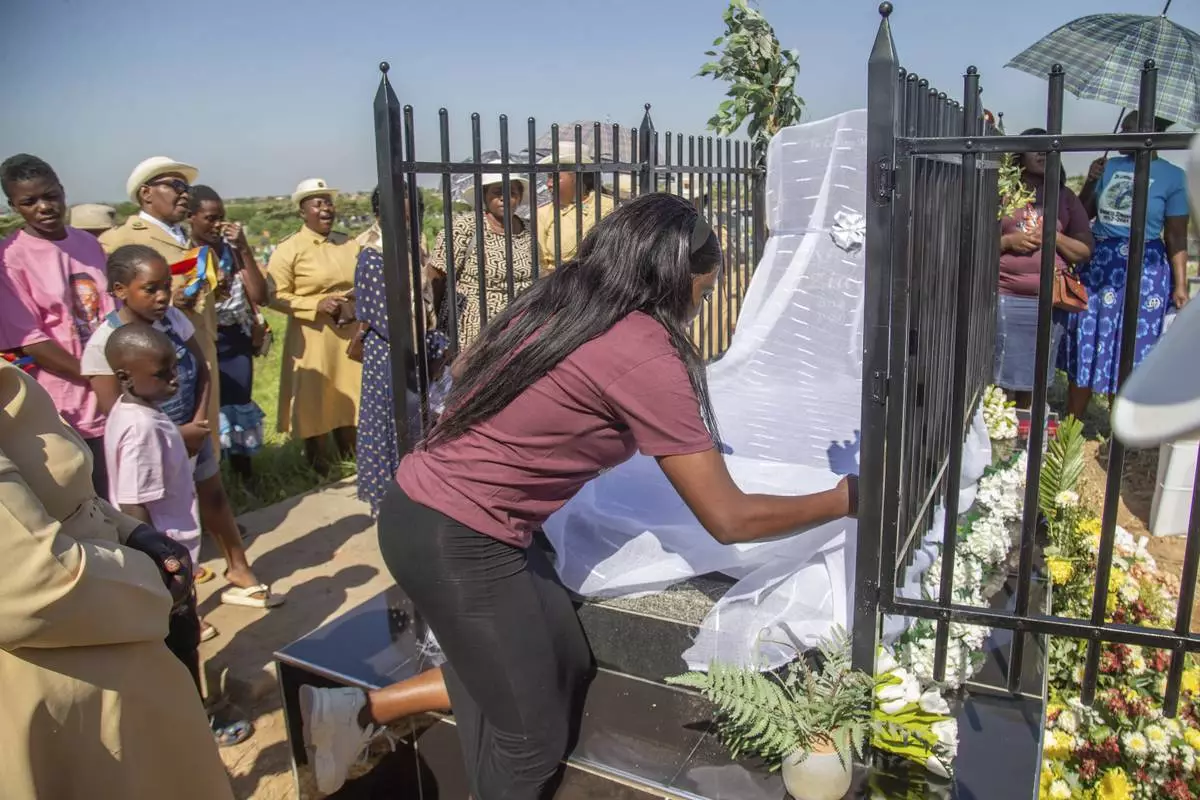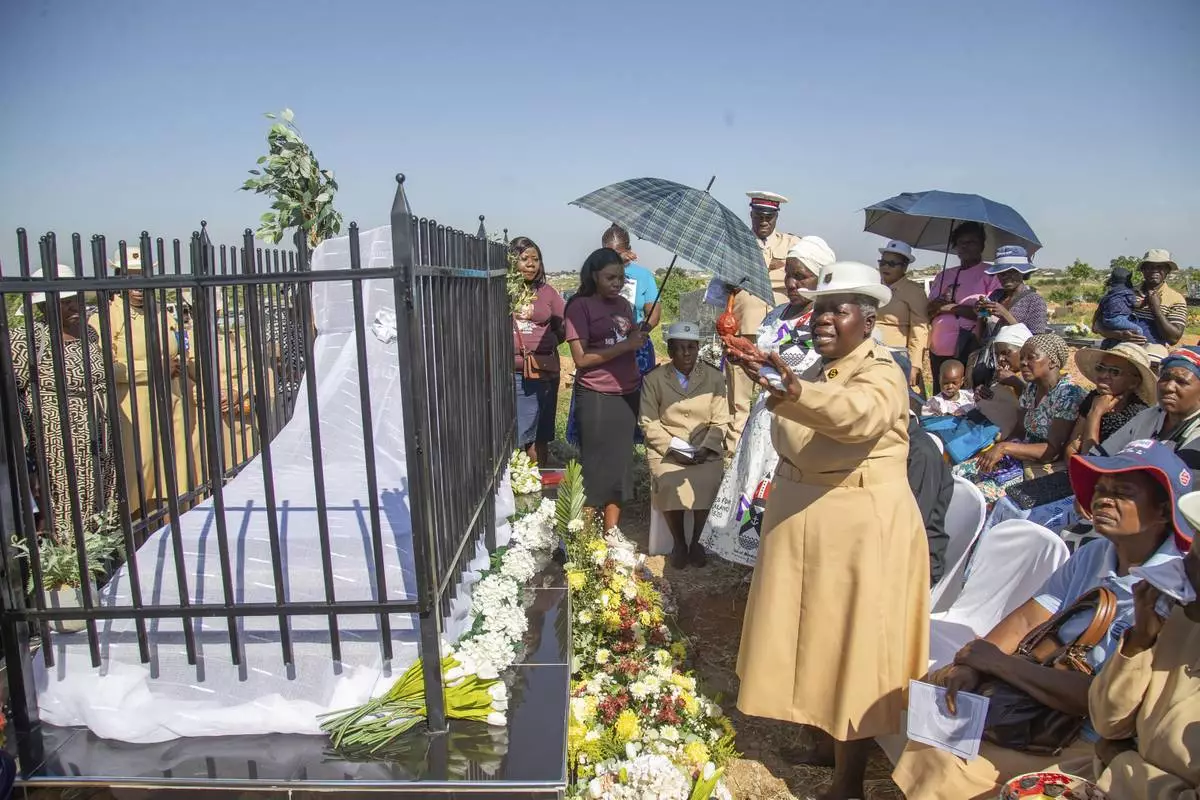MEXICO CITY (AP) — On a Sunday afternoon in Mexico City’s Roma neighborhood, Rosa María Espinosa joins nearly 80 men under a park pavilion to play poleana, a board game requiring mental dexterity that was born in the city's prisons nearly a century ago.
Espinosa blows smoke rings with her cigarette and laughs with the others. Today she will be the only woman playing.
Though the game's origins still carry a stigma, it is having a moment as people from diverse backgrounds discover its appeal.
“It’s a lot of adrenaline,” said Espinosa. “But sometimes the dice aren’t lucky.”
Poleana is played on a square wooden box with a sunken center for dice rolling. Four players, each with four pieces, race to navigate the board, using specific dice combinations and calculations to move their pieces from their starting positions, around the board, and out through their designated corner, while strategically blocking opponents.
The board symbolizes the confines of prison, and getting out before the others, winning freedom — even if just metaphorically — is the game’s goal.
“People used to say ‘these folks know how to play because they've been to prison,’” said the 62-year-old Espinosa. “Thank God I’ve never been, but I like to play.”
This afternoon’s tournament marks the first time she’s competed against anyone outside her circle of relatives or friends she usually plays with on Tuesdays and Sundays in the small chapel of her apartment complex.
Alejandro Olmos, an archaeologist and anthropologist specializing in Mesoamerican games at the National Anthropology and History School, has studied and played poleana for years.
He traces the game’s origins to the Indian game chaupar (or pachisi), with archaeological evidence dating back to 600 A.D. After British colonization, the game spread to various Western countries under different names, including Ludo, Aggravation and Parcheesi.
In the United States, game maker Parker Brothers marketed a similar game, which was based on the 1913 novel by Eleanor H. Porter “Pollyanna.”
Sometime around 1940, the game spread in the lockups of Mexico City, with Lecumberri—a prison whose very architecture echoed the geometry of the poleana board — likely serving as its initial breeding ground. It was here where it was renamed poleana and received a new set of rules.
“All cultures have a process called adoption-transformation,” Olmos said. In Mexico, “the game reflects the roughness of prison life: mistakes are not pardoned.”
Six years ago, Jonathan Rulleri started a family business promoting poleana with the goal of bringing together people from different walks of life.
One of the early challenges was establishing common rules for the game, "which has been spreading from below, from prison to the street and from the street into neighborhoods,” said the 37-year-old Rulleri, who learned to play while incarcerated in the State of Mexico, outside the capital.
After his release, he struggled to find work, a common problem for those who have been imprisoned.
He launched a taco delivery service alongside his wife, but the business proved unsuccessful, leading him to reluctantly accept a commission to craft a poleana board for an acquaintance. Then came another commission — and he began to post his creations on social media.
“We dumped the taco idea and started making poleanas,” said Rulleri.
The resulting business, Poleana Cana’da Frogs — a name derived from a slang word for prison and a description of the way the pieces hop around the board — has so far organized 55 poleana tournaments in public spaces, emphasizing a family-friendly atmosphere and explicitly excluding betting, a practice common in other poleana events.
“We want to remove the game’s stigma, that it was a game for prisoners or slackers,” Rulleri said.
In the 1980s, the game began to spread beyond the prisons and found purchase in many of Mexico City’s rougher neighborhoods.
Tepito — the capital’s cradle of street commerce and boxing — is one of the neighborhoods where people can almost always be found playing poleana. At a handball court where men of all ages smack a ball against a wall, others on the sidelines play poleana late into the evening.
Fernando Rojas, 57, learned poleana when he was 18, but it was in prison where he honed his talents. The games, which can last for hours, in prison happen back-to-back.
“It really helps you escape the reality of being a prisoner and that’s how it started,” Rojas said. “No one can understand what it’s like to be a prisoner … you don’t see the end of your sentence. There are people who have to do drugs as their way to escape. Poleana is very important in prison.”
Now the game serves as Rojas’ therapy: a way to relieve stress and avoid family conflict. He carries his dice and pieces in a small plastic bag, religiously joining his friends at the handball court to play.
“We all have problems, in prison and in the street,” he said. “So a lot of people come here for a distraction.”
In Poleana, plays and number combinations have names. For example, a roll of six is a “six pack,” because that’s what it looks like when seen from above. Rolling doubles prompts celebratory shouts of “pares y no pares," a play on Spanish words for pairs and not stopping. With luck, you could get a piece three-quarters of the way around the board.
While chance plays a role, mathematical calculation is also key.
That’s why Diego González and Dana López are thrilled that their 7-year-old son Kevin is learning to play poleana. He has fun and he’s getting faster with his calculations.
González, 33, also makes poleana boards through his family business, Poleanas Iztapalapa, finding a creative outlet after serving a three-year sentence a decade ago. He crafts personalized boards with details like strobe lights and Bluetooth speakers.
His boards are popular gifts for weddings, birthdays and Christmas. Some special commissions have included requests to include images of deceased loved ones in the sunken area where dice are tossed. Others want playful characters to decorate boards they give to their children.
Sales surged during the COVID-19 pandemic, when people were shut in their homes and found poleana to be a good way to pass the time.
“Two, three hours counting and tossing, and all that was really nice for them,” he said. “They realized it’s not a bad game, it’s a game of strategy and getting the family together.”
Follow AP’s coverage of Latin America and the Caribbean at https://apnews.com/hub/latin-america
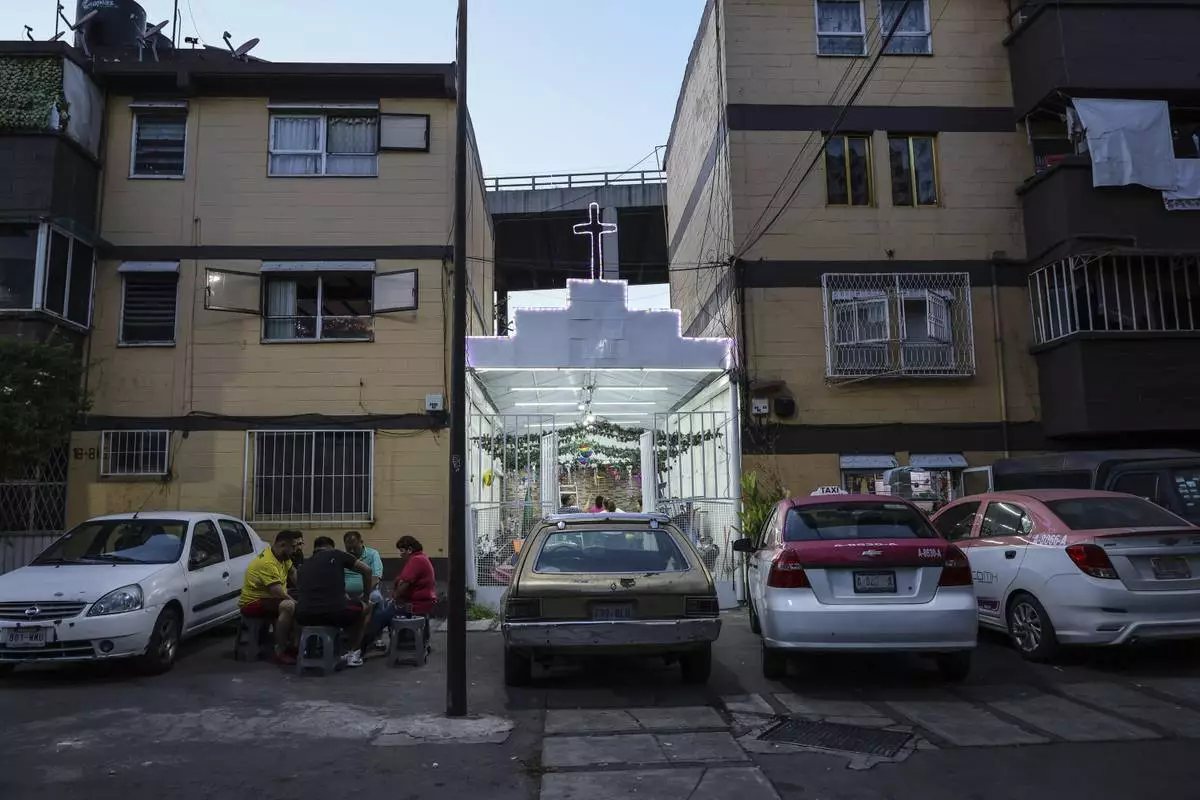
Residents play Poleana, a board game invented in prison in Mexico City, Sunday, Dec. 8, 2024. (AP Photo/Ginnette Riquelme)
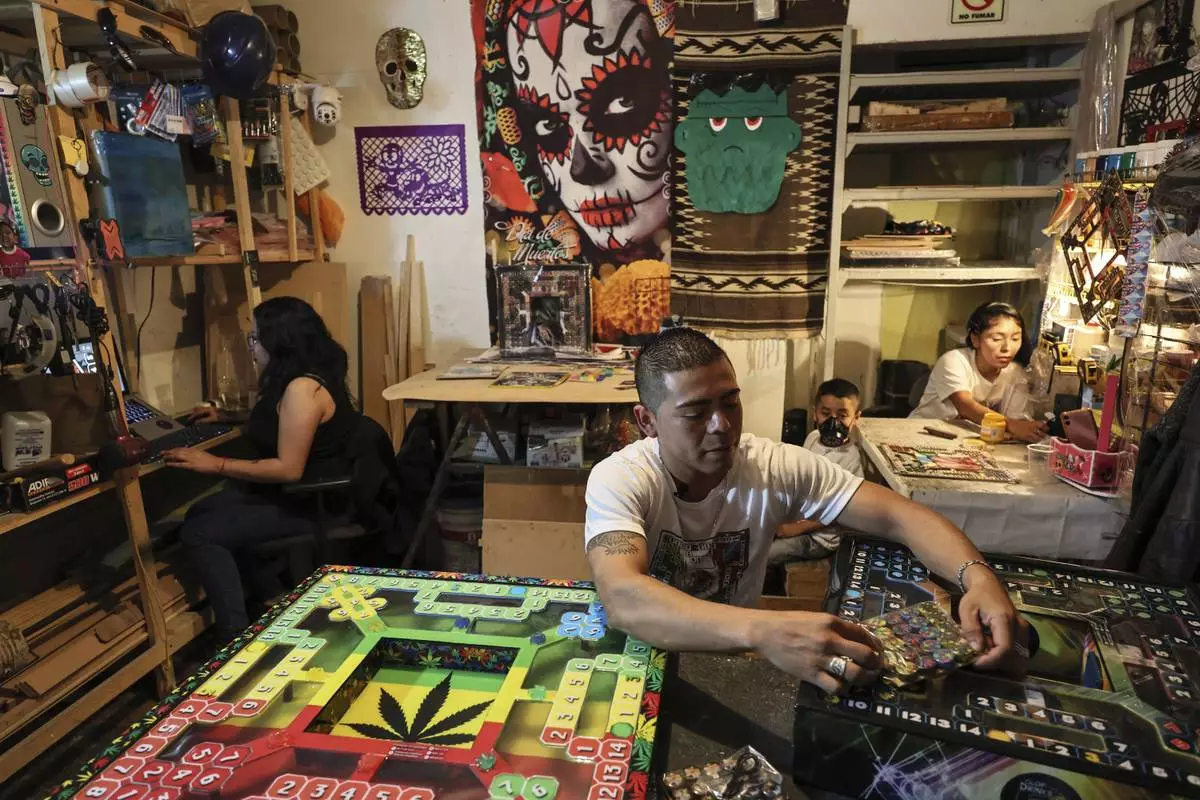
Diego Gonzalez, center, holds a pack of tokens for poleana, a board game invented in prison, alongside designer Carolina Duran, left, and Dana Lopez, his partner, with their son Kevin in the State of Mexico, Mexico, Friday, Oct. 25, 2024. (AP Photo/Ginnette Riquelme)
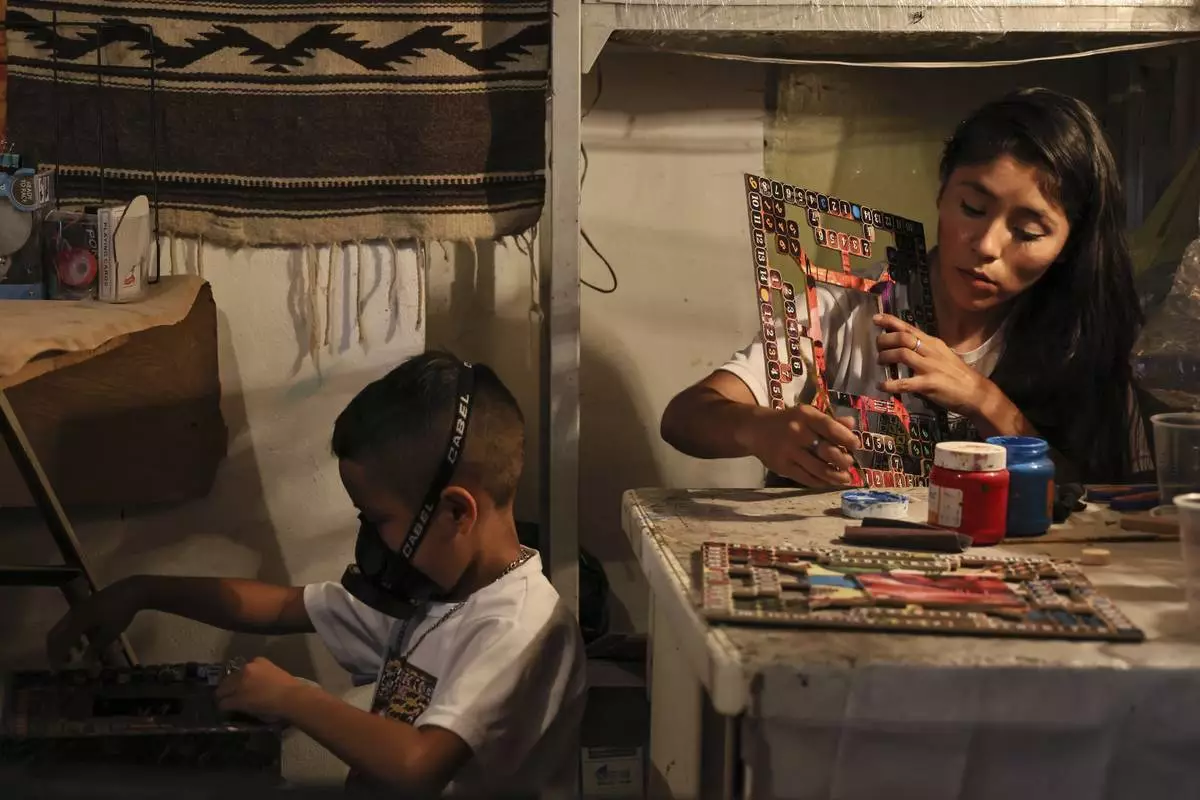
Dana Lopez, right, paints a board for poleana, a board game invented in prison, while her son Kevin plays in their workshop in the State of Mexico, Mexico, Friday, Oct. 25, 2024. (AP Photo/Ginnette Riquelme)
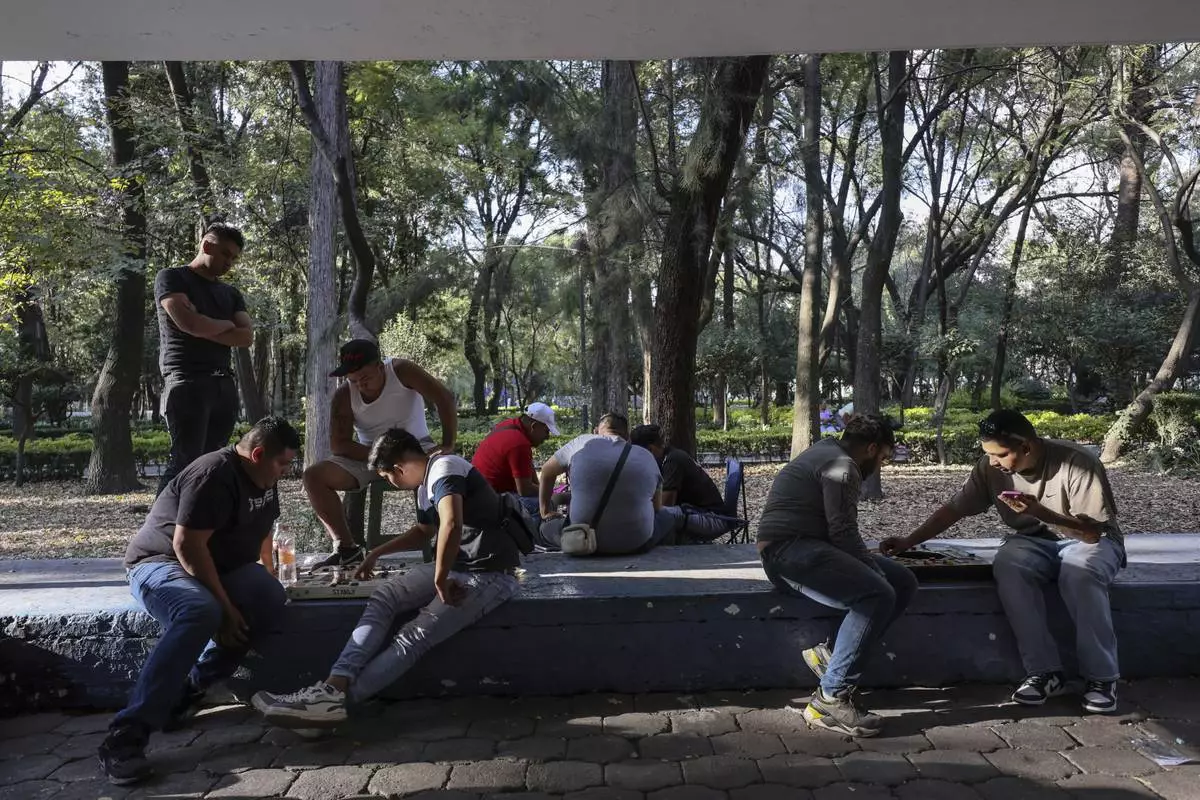
Participants play Poleana, a board game invented in prison, during a tournament in Mexico City, Sunday, Nov. 17, 2024. (AP Photo/Ginnette Riquelme)
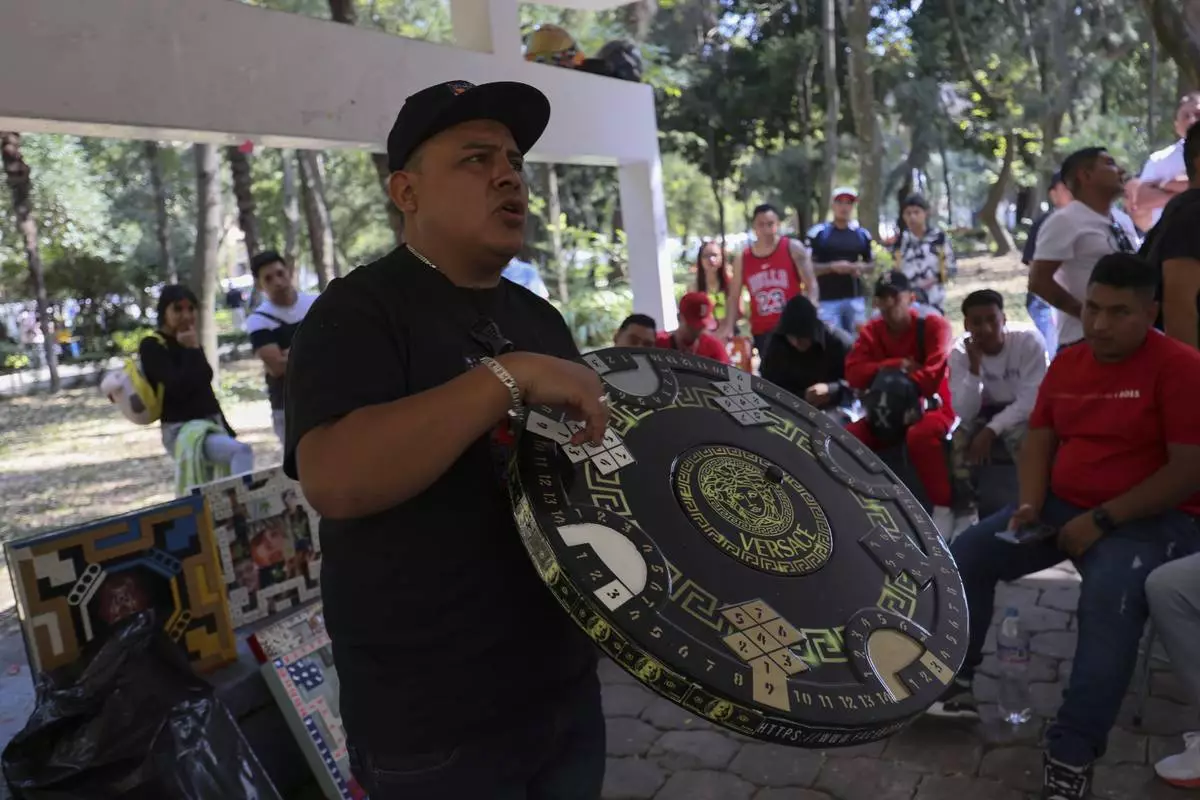
Jonathan Rulleri, the founder of Poleanas Canada Frogs, holds up a poleana board, a game he invented in prison, to be raffled off before the start of a tournament in Mexico City, Sunday, Nov. 17, 2024. (AP Photo/Ginnette Riquelme)
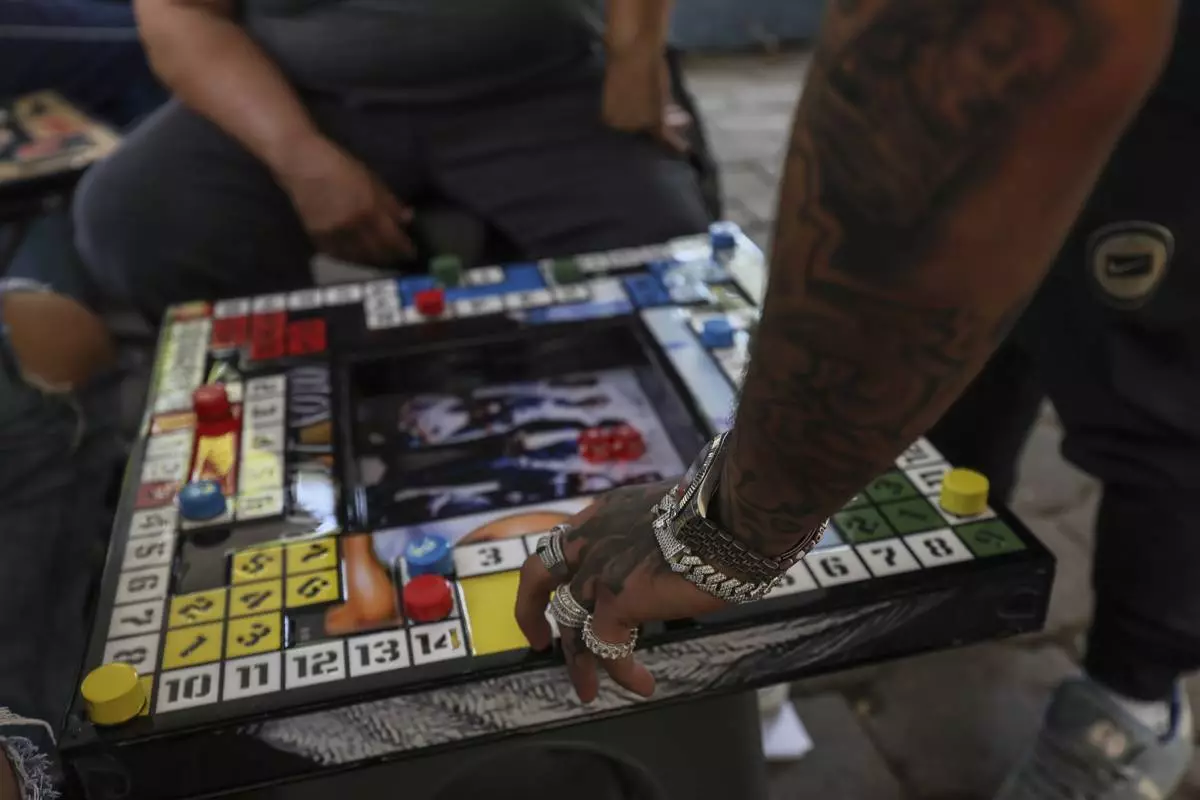
A player moves his piece in poleana, a board game invented in prison, during a tournament in Mexico City, Sunday, Nov. 17, 2024. (AP Photo/Ginnette Riquelme)
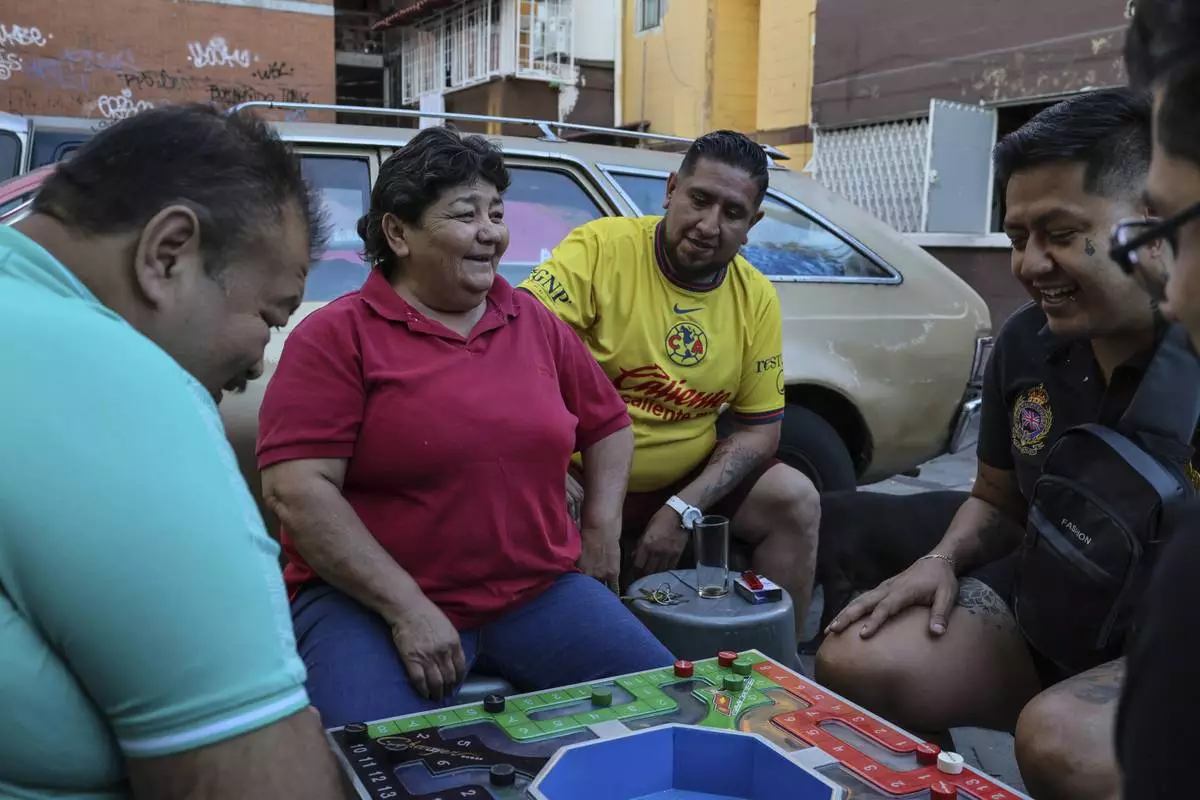
From left, Salvador Espinosa, Rosa Espinosa, Diego Castillo, Erik Cisneros and Ulises Tiscareño share a joke while playing poleana, a board game invented in prison in Mexico City, Sunday, Dec. 8, 2024. (AP Photo/Ginnette Riquelme)
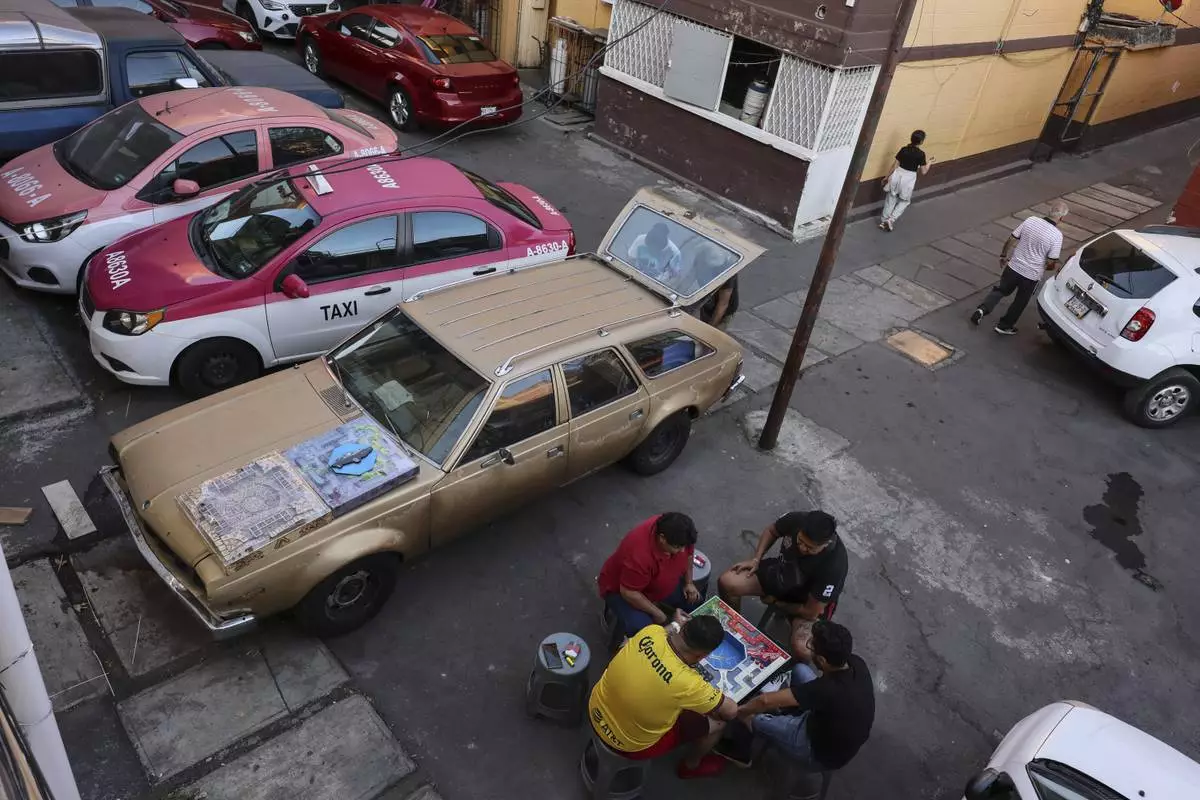
Residents play poleana, a board game invented in prison, in Mexico City, Sunday, Dec. 8, 2024. (AP Photo/Ginnette Riquelme)
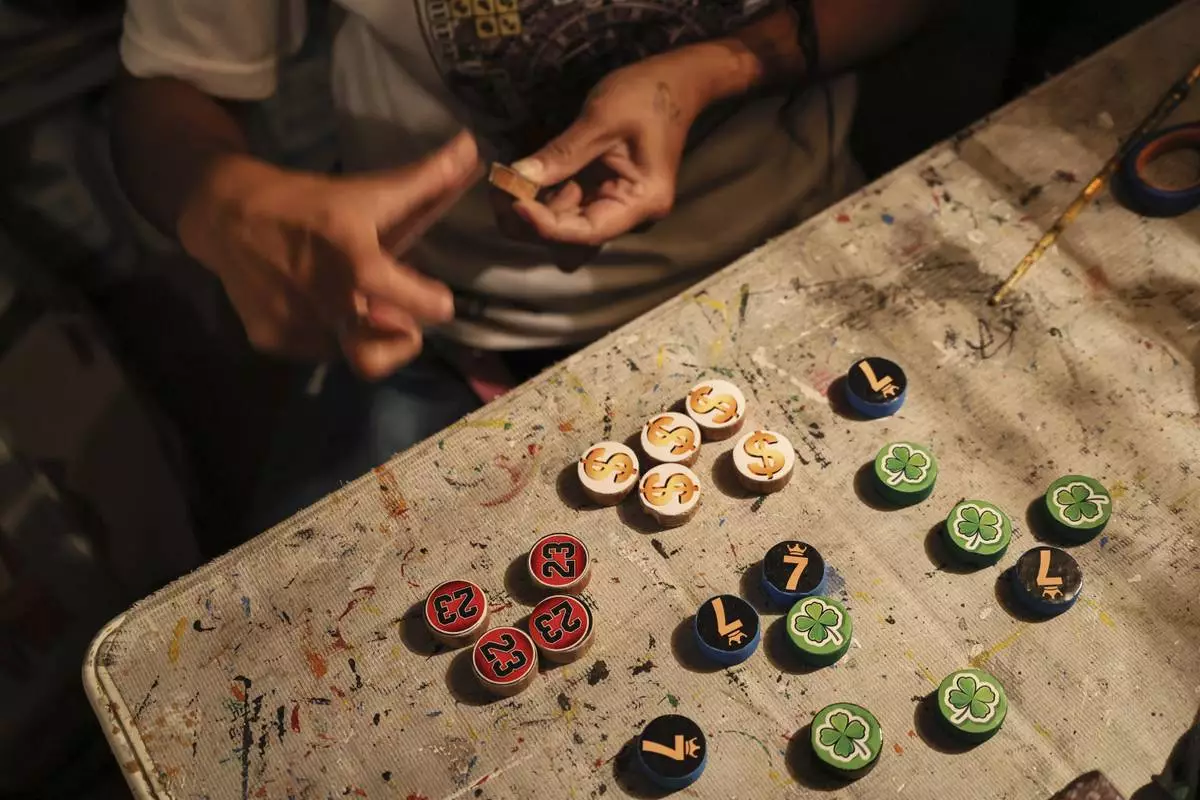
Dana Lopez sands a wooden token for poleana, a board game invented in prison, in his workshop in Mexico State, Mexico, Friday, Oct. 25, 2024. (AP Photo/Ginnette Riquelme)
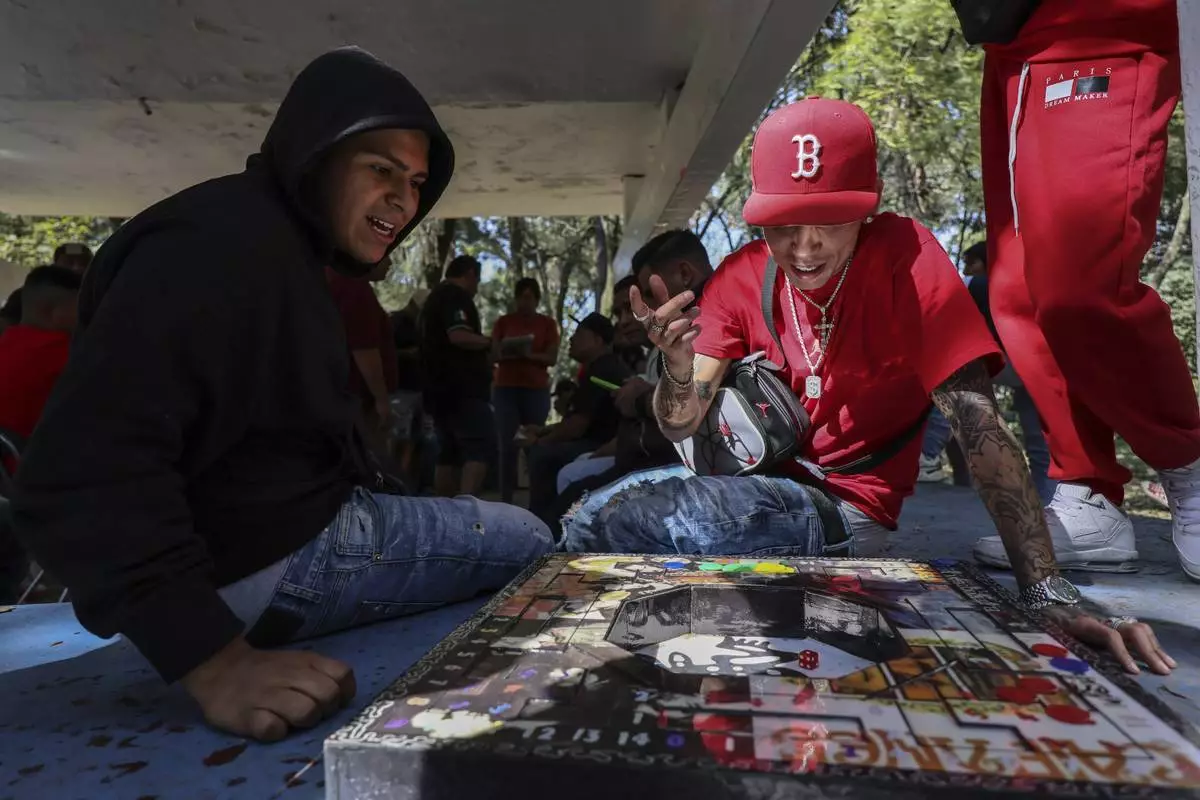
People play poleana, a board game invented in prison, before a tournament in Mexico City, Sunday, Nov. 17, 2024. (AP Photo/Ginnette Riquelme)


